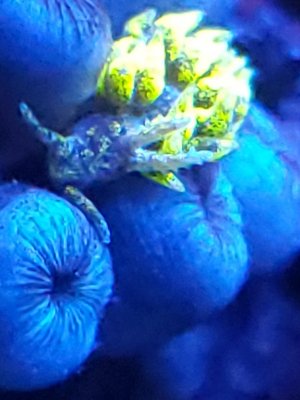- Joined
- May 16, 2019
- Messages
- 423
- Reaction score
- 335
I haven’t added any new rock or coral to my tank in months but today I noticed a bright yellow nudibranch about 2cm long moving across the back glass of my aquarium. The back of the tank is rarely cleaned so it wasn’t easy to photograph it through the algae buildup but here are the vest photos I got. Is this nudibranch a danger to my tank? I don’t know what kind it is or how it has been surviving in my tank for so long. I’m worried about my corals or if it’s toxic to the water when it dies.
Can anyone help?



Can anyone help?
















